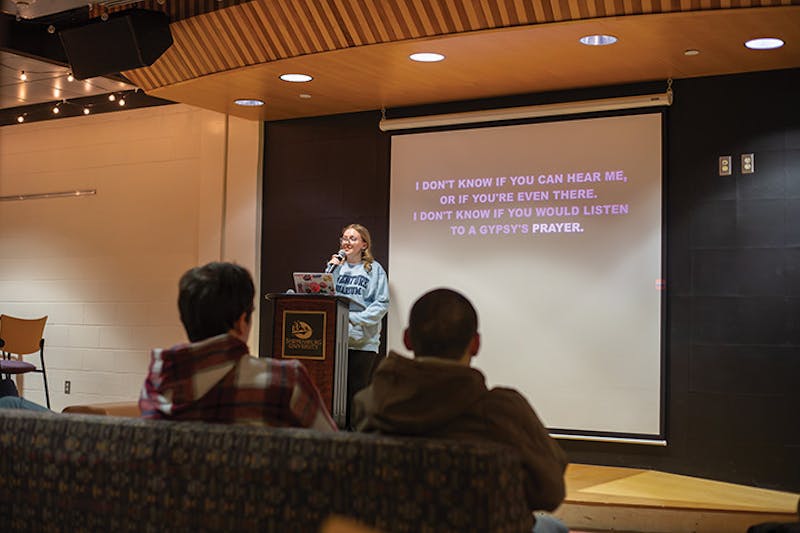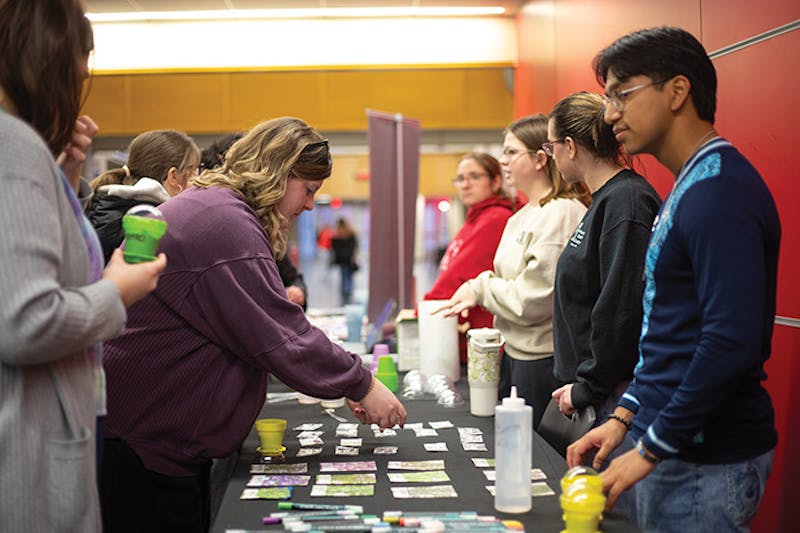In middle school, I had to take a “life preparation” class in which we had to start thinking of life after school. I thought it was weird as a seventh grader– I did not need to start thinking of college yet.
I didn’t know what I wanted to do with my life, and still kind of do not, but I was able to identify three goals for my time in college: Have a double major, host a radio show, and study abroad.
When I came to Shippensburg University, there were paths laid out for how I could achieve my first two goals. However, I did not really think that studying abroad would fit into my busy schedule and my seemingly unrelated degree. Despite this, I was able to study abroad in Northern France for 18 days this summer.
After having gone abroad for the first time, I wanted to share my advice for other students who also would like to study abroad but are unsure of where to start.
Tip 1: Stay open to the idea of studying abroad.
Despite having a dream of studying abroad, everything seemed to work against me. When I came into college in the Fall of 2020, everything was hidden behind screens and masks. Even my communications major did not seem to easily accommodate a study abroad, especially as I became highly involved on campus with student media groups and music ensembles. I did not see how I could step away from my commitments for a long time to go to another country, especially while COVID-19 was still a large issue.
It was the fall of my junior year when I finally saw a glimmer of travel hope. The Departments of History, Global Languages, and Communication, Journalism and Media started promoting a joint trip to France. This excursion would last a little over two weeks, would tour the fascinating culture of Northern France, and, the best part, it would count toward my degree.
Studying abroad does not have to be a semester-long trip to a country of a foreign language by yourself. It can be an 18-day trip with accompanying professor and classmates. If you are anything like me, this may seem like a better alternative. There are lots of different opportunities cropping up, so keep looking until you find a program that is right for you.
Tip 2: You do not have to know everything about where you are going.
Ideally, you should have a working knowledge of the country you are studying in, but do not let it stop you if you do not. When I went to France, I had never taken a French class. I knew relatively nothing of the country’s extensive history. I was genuinely speed-running learning everything about France, from its culinary culture and history to its language and everything in between.
Being mostly submerged in a new culture will force you to learn new things. Now, I can count to 10 and order food at a restaurant. Most importantly, I can say, “Je vois la vache.” (That means I see the cow.) You will learn the important things along the way, so do not sweat not knowing everything.
Tip 3: You are going to miss home, and that is OK.
Speaking of cows, I missed being home. Where I am from in Pennsylvania, I have more cows as neighbors than I do people. So, when we stepped off our train in Bayeux, and I was greeted by some gorgeous white cattle, I was thrilled. Back home, I work with the Pennsylvania Department of Agriculture, and take photos at various livestock expositions and other events. Something about seeing cows, and being able to teach my peers about them, seemed to melt my homesickness away.
However, homesickness comes in waves. Toward the end of my trip, I was ready to go home. If you miss home, that is OK. Even if it means ordering just mozzarella sticks from the fancy French restaurant on your second to last night in Paris, you can find ways to combat it.
In the end, I am glad that I got a chance to study abroad. I have truly made friends and memories that will last a lifetime. If you are contemplating whether you should study abroad, please go for it. You will not regret it. As I approach my final year of college, I have begun to realize just how quickly time passes. Make the most of it.




The Slate welcomes thoughtful discussion on all of our stories, but please keep comments civil and on-topic. Read our full guidelines here.